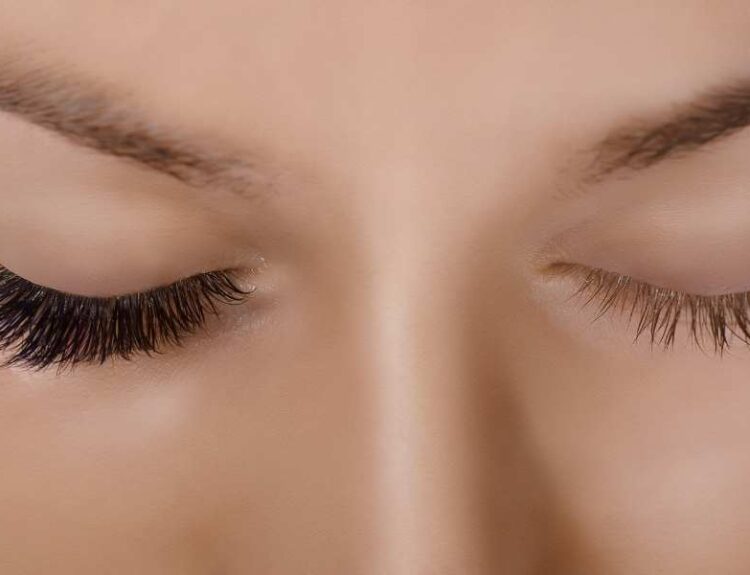Table of Contents
Introduction: How to Diminish Pores on Face
Facial pores, though essential for maintaining skin health, often become a cosmetic concern when they appear enlarged or overly visible. These tiny openings allow the release of sebum and sweat, but various factors—ranging from genetics to environmental stressors—can make them more prominent. As a result, many individuals seek effective solutions to refine their skin texture and achieve a smoother, more even complexion.
In this article, we explore how to diminish pores on face using scientifically supported methods. From optimal skincare routines to advanced clinical treatments and evidence-based lifestyle practices, the strategies outlined here are designed to help you regain control of your skin’s appearance through actionable, dermatologist-approved guidance.
Understanding Enlarged Pores and Their Underlying Causes
Before exploring treatment options, it is essential to understand the root causes behind visible pores. While pore size is primarily determined by genetics, several contributing factors can influence their appearance:
Common Causes of Enlarged Pores
- Excess Sebum Production
Overactive sebaceous glands stretch the pores, particularly in oily or combination skin types. - Loss of Skin Elasticity
Aging and UV damage degrade collagen and elastin, weakening the pore structure and causing them to appear wider. - Clogged Pores
Accumulation of dead skin cells, oil, and debris can obstruct pores, causing them to dilate over time. - Improper Skincare Practices
The use of comedogenic products or inconsistent cleansing can lead to buildup and pore stretching. - Hormonal Imbalances
Fluctuations in hormone levels can trigger increased oil production, especially during puberty, menstruation, or pregnancy.
Optimizing Your Skincare Routine to Minimize Pore Visibility
A consistent and well-formulated skincare routine is one of the most effective ways to reduce the appearance of enlarged pores. The following regimen incorporates proven ingredients and best practices for pore refinement.
Step 1: Gentle Daily Cleansing
Use a sulfate-free, non-comedogenic cleanser to remove excess oil, dirt, and environmental pollutants without disrupting the skin’s barrier.
- Recommended ingredients:
- Salicylic Acid (BHA) – deeply cleanses pores
- Glycolic Acid (AHA) – exfoliates surface dead skin cells
- Salicylic Acid (BHA) – deeply cleanses pores
Step 2: Targeted Exfoliation (2–3 Times Weekly)
Regular exfoliation promotes cell turnover and prevents buildup that can stretch pores.
- Chemical Exfoliants:
- AHAs (e.g., lactic acid, glycolic acid) for surface smoothing
- BHAs (e.g., salicylic acid) for deeper pore penetration
- AHAs (e.g., lactic acid, glycolic acid) for surface smoothing
Avoid physical scrubs that may cause microtears or irritation.
Step 3: Application of Niacinamide Serum
Niacinamide (Vitamin B3) helps regulate oil production, strengthen the skin barrier, and visibly refine pore appearance.
- Usage: Apply a serum containing 5–10% niacinamide after cleansing and before moisturizing.
Step 4: Lightweight, Non-Comedogenic Moisturization
Hydration is crucial—even for oily skin types. A balanced moisturizer keeps skin supple and helps prevent overproduction of sebum.
- Look for:
- Hyaluronic acid
- Glycerin
- Ceramides
- Hyaluronic acid
Step 5: Daily Broad-Spectrum Sun Protection
UV exposure contributes to collagen breakdown, making pores appear larger over time.
- Recommendation: Use a mineral-based SPF 30 or higher, ideally with zinc oxide or titanium dioxide.
Professional Dermatological Treatments for Pore Reduction
For individuals seeking more dramatic or accelerated results, dermatological interventions can significantly reduce pore visibility. These treatments are clinically validated and often performed in conjunction with a homecare regimen.
Chemical Peels
- Mechanism: Removes the outer layer of skin to promote regeneration and unclog pores
- Effective Acids: Glycolic, salicylic, lactic
- Ideal For: Congested, acne-prone, or textured skin
Microneedling
- Mechanism: Induces collagen production through controlled micro-injuries
- Benefits: Improves skin firmness, reduces fine lines, and tightens pores
- Treatment Plan: Typically performed in multiple sessions
Laser Resurfacing
- Options: Fractional CO2, Fraxel, Clear + Brilliant
- Results: Rejuvenates the skin, enhances collagen production, and minimizes pore diameter
- Consideration: Requires downtime depending on the intensity of the laser
HydraFacial
- Procedure: A multi-step facial combining cleansing, exfoliation, extraction, and hydration
- Outcome: Immediate skin refinement with reduced congestion and pore size
Consult with a board-certified dermatologist to determine the best course of treatment based on your skin type and goals.
Lifestyle and Nutritional Factors That Influence Pore Appearance
The skin reflects internal health. Adopting balanced lifestyle habits supports long-term skin improvement and complements topical treatments.
Nutrition and Hydration
- Increase intake of:
- Omega-3 fatty acids (e.g., salmon, flaxseeds)
- Antioxidant-rich fruits and vegetables (e.g., berries, leafy greens)
- Zinc and vitamin C for collagen support and wound healing
- Omega-3 fatty acids (e.g., salmon, flaxseeds)
- Reduce intake of:
- Processed sugars
- Dairy (in sensitive individuals)
- Processed sugars
- Hydration:
Drink at least 8 glasses of water daily to maintain skin elasticity and detoxify.
Sleep and Stress Management
- Sleep: Aim for 7–9 hours of quality sleep to support skin regeneration
- Stress: Practice mindfulness or light exercise to reduce cortisol levels, which are linked to excess oil production
Hygiene Practices
- Regularly clean:
- Pillowcases
- Phone screens
- Makeup brushes
- Pillowcases
Maintaining a clean environment reduces the risk of pore-clogging bacteria and debris.
Preventive Measures for Long-Term Pore Refinement
Consistency and prevention are key to maintaining smoother, refined skin. Implement these long-term practices:
- Use only non-comedogenic skincare and makeup products
- Avoid manual pore extraction, which can stretch or damage pore walls
- Double cleanse in the evening to fully remove makeup and sunscreen
- Do not skip sunscreen, even on cloudy days or indoors
Conclusion
Enlarged facial pores are a common concern, but they are manageable with the right knowledge and skincare approach. By understanding what causes enlarged pores and implementing a combination of strategic skincare, professional treatments, and lifestyle modifications, individuals can significantly improve their skin’s texture and overall appearance.
Mastering how to diminish pores on face requires consistency, patience, and evidence-based practices. With the tools and information provided in this guide, you’re well-equipped to achieve smoother, healthier-looking skin over time.







